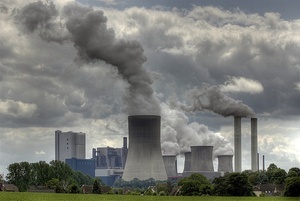
The system built to manage Russia’s nuclear legacy is crumbling, our new report shows
Our op-ed originally appeared in The Moscow Times. For more than three decades, Russia has been burdened with the remains of the Soviet ...
News

Publish date: September 23, 2015
News
“Without proposing any new unlikely policies, this plan shows how Europe can help secure its future industrial base and climate leadership by applying existing policies in the most effective way. Bellona Europa has lead ZEP’s work on this plan and we are now looking forward to working with the Commission on putting it into practice. It’s time for action.” Bellona Europa Director Jonas Helseth commented.
Helseth concluded by remarking that “the request from the Vice-President before the Summer was a most welcome sign of renewed high-level EU engagement on CCS.”
The Executable Plan builds on Bellona’s earlier recommendations to the Norwegian government, on the establishment of a CO2 economy – A future CO2 economy: The case of Norway.
Emitting CO2 to the atmosphere is currently much cheaper than storing it safely underground. Emitters can pay an ‘ETS wergild’ and are divorced from all the consequences of their actions, yet if they try to sequester CO2 they risk taking on liability for decades under the CO2 Storage Directive. With no 2050 targets adopted as legal long-term basis for the ETS, the emission trading system provides foresight only until 2030. Those factors serve, along with the lack of a near-term business case, to prolong the current inertia on CCS in the EU.
The Executable Plan aims to provide a way through EU inertia and on to action by describing how the Commission can effectively and rapidly aid wide uptake of CCS in Europe; delivering additional CCS projects in power and industry; progressing the development of CCS hubs in Europe; and supporting the appraisal of storage capacity required for commercial CCS deployment.
Dr Graeme Sweeney, Chairman of the Zero Emissions Platform, said: “The logic that emitting CO2 is cheaper than capturing and storing it needs to be disrupted. We have a proven technology available but now must remove the remaining obstacles to make a sound business case for infrastructure development. This plan introduces European “Market Makers”, either state-owned or regulated private entities, as efficient and cost-effective mechanisms for accelerating the deployment of CCS by creating flexibility in the market. These can be the catalyst for translating intentions into actions.”
Visit the ZEP website for the complete Executable Plan.

Our op-ed originally appeared in The Moscow Times. For more than three decades, Russia has been burdened with the remains of the Soviet ...

The United Nation’s COP30 global climate negotiations in Belém, Brazil ended this weekend with a watered-down resolution that failed to halt deforest...

For more than a week now — beginning September 23 — the Zaporizhzhia Nuclear Power Plant (ZNPP) has remained disconnected from Ukraine’s national pow...

Bellona has taken part in preparing the The World Nuclear Industry Status Report 2025 and will participate in the report’s global launch in Rome on September 22nd.